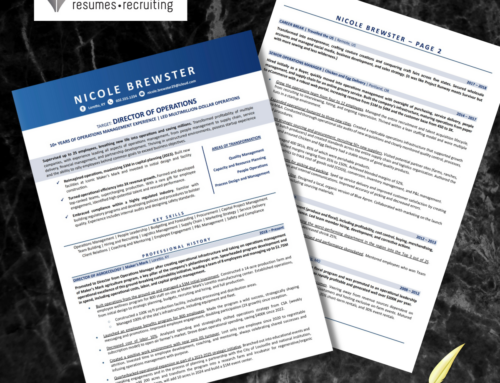Losing a job is more than just losing a source of income. For some people, having their employment status change can seem like the end of the world. In a society where our occupation plays a key role in who we are, we sometimes live in fear of hearing that five-letter word (FIRED). So, what do you do if you find yourself suddenly unemployed? Here are tips and tricks to help you bounce back from being fired and jump into your job search with confidence.
Spinning the Narrative
As a resume writer and career-placement expert, it’s my job to get my clients hired. And when someone comes to me that has been recently fired, it serves as the perfect opportunity to “spin” the story on why they were let go. By spinning the story, you have control over how you explain your termination. This will help you take ownership of the situation and actively strategize how to keep your recent termination from “getting you fired” before you’ve even been hired.
Common Termination Scenarios and How To Explain Them
Scenario 1: The Whistleblower. If your employer fired you to keep you from talking, tell your potential employer the truth. Let them know that you value your commitment to doing the right thing for your clients and the company. And, if for some reason, your potential employer doesn’t like that answer, you might not want to work for them anyway.
Scenario 2: Attendance Problems. Because attendance, punctuality, and accountability are very important, you may feel a need to lie about being fired over attendance. However, if you are in this situation, you’ll want to be truthful about your attendance problem without harping on it. Instead, tell your potential employers that you have worked on the problem and it is not an issue anymore.
Just as a side note, if this has been a problem for you in the past, you do need to fix it. So, before you start your job search, think about potential jobs that won’t create attendance issues for you. Maybe you need to work a night shift or work from home. Whatever it is, be sure your new job won’t accidentally put you in an attendance bind again.
Scenario 3: The Lay-off. Being laid off is not the same as being fired. When you go into a potential job, keep that in mind. Tell your next employer that you were laid off, then focus on your achievements and accomplishments instead of ruminating on being let go.
Scenario 4: Performance Problems. This one is tricky. Performance problems, depending on the situation and the outcome, can play a key role in whether or not you get the next job you seek. So, naturally, you may feel led to lie, hide the situation, or blame someone else for the problem. But when it comes to getting a quality job, none of these approaches will work.
If you’re in this situation, start by being honest and not making any excuses for your behavior. Instead, take ownership of what went wrong and talk about what steps you’ve taken to make sure that won’t happen again.
Nobody wants to unwillingly lose their job. But if this happens to you, don’t let it define your career path. If you keep searching and put your best foot forward, and I’m sure you’ll land an awesome job in no time. To learn more about how to handle tricky resume situations read more on my blog about employment gaps or even just basic resume construction. As always, I’m here for questions and comments!












